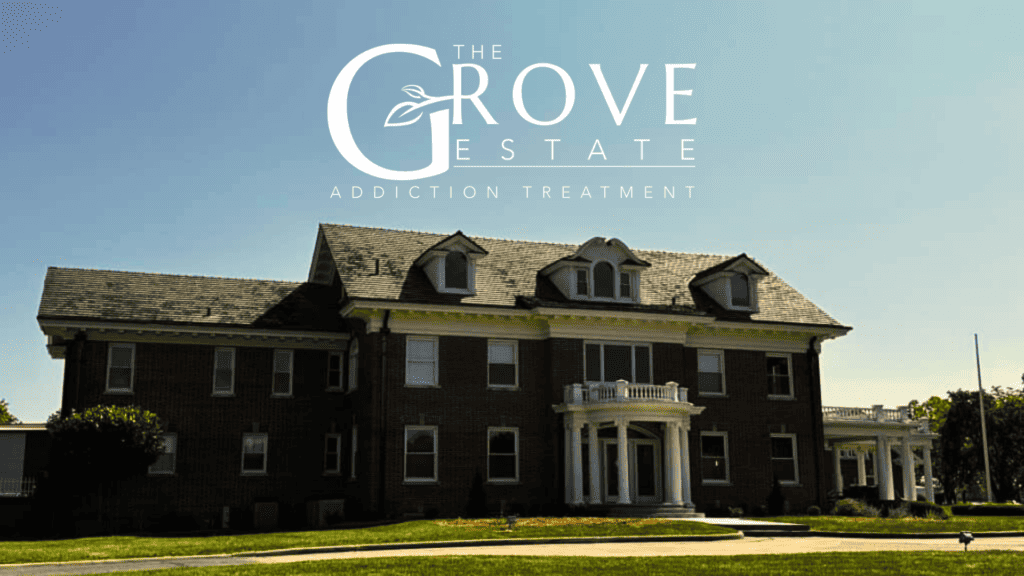Support groups play a vital role in addiction treatment by providing individuals with a sense of community and a platform to share their experiences, challenges, and triumphs. These groups bring together people who are on similar journeys, fostering an environment of understanding and empathy. In this article, we’ll explore the various types of support groups available for addiction treatment and delve into the numerous benefits they offer to those seeking recovery.
Types of Support Groups
Support groups for addiction treatment come in various forms, catering to different needs and preferences. Some of the common types include:
Based on the principles of Alcoholics Anonymous (AA) and Narcotics Anonymous (NA), these groups follow a structured, step-by-step approach to recovery.
A science-based alternative to 12-step programs, Smart Recovery focuses on self-empowerment and self-reliance.
Tailored for individuals dealing with both substance use disorders and co-occurring mental health issues.
These groups involve the loved ones of individuals struggling with addiction and provide a platform for education and mutual support.
Virtual communities where individuals can connect, share, and receive support from the comfort of their homes.
Some support groups focus on specific substances, such as Alcoholics Anonymous for alcohol addiction.
What Are The Different Types of Support Groups?
Several types of support groups cater to individuals with varying needs and preferences. Here are some common ones:
- 12-Step Programs: Perhaps the most well-known, 12-step programs like Alcoholics Anonymous (AA) and Narcotics Anonymous (NA) follow a structured approach centered on a set of guiding principles and steps. Members work through these steps with the support of a sponsor.
- Smart Recovery: Smart Recovery is a science-based program that emphasizes self-empowerment and self-reliance. It employs cognitive-behavioral techniques to help individuals manage addictive behaviors.
- Celebrate Recovery: This Christian-based program combines spiritual and faith-based elements with addiction recovery principles. It addresses a wide range of addictive behaviors and offers support through biblical teachings.
- Dual Diagnosis Groups: These support groups are designed for individuals dealing with both addiction and co-occurring mental health disorders. They focus on the unique challenges of dual diagnosis and provide resources for holistic recovery.
- Family Support Groups: Addiction doesn’t just affect the individual; it impacts their loved ones as well. Family support groups, such as Al-Anon and Nar-Anon, provide guidance and healing for the families and friends of individuals in recovery.
- Online Support Groups: In the digital age, online support groups have become increasingly popular. These virtual communities offer convenience and accessibility, allowing individuals to connect with peers from anywhere in the world.
How do Support Groups Work?
Support groups typically follow a structured format that encourages participation and open dialogue. Here’s a brief overview of how these groups operate:
- Meetings: Support groups hold regular meetings, often weekly, where members gather to discuss their experiences, share insights, and provide support to one another.
- Facilitation: Meetings are often facilitated by experienced individuals who guide discussions and ensure that the group remains focused and respectful.
- Anonymity: Many support groups emphasize confidentiality and anonymity, allowing participants to share their stories without fear of judgment.
- Sharing: Members have the opportunity to share their challenges, successes, and thoughts with the group. This sharing can be instrumental in personal growth and healing.
- Open Discussion: Meetings may include open discussions on topics related to addiction, recovery, and coping strategies. These discussions offer valuable insights and guidance.
- Sponsorship: Some support groups, like 12-step programs, offer sponsorship opportunities where individuals with more experience in recovery mentor and support newcomers.
What Are The Benefits of Support Groups?
Participating in addiction support groups offers individuals a multitude of benefits that can significantly enhance their recovery journey:
- Peer Understanding: Support groups create a safe space where individuals can openly discuss their struggles and successes with others who have experienced similar challenges. This shared understanding reduces feelings of isolation and loneliness.
- Accountability: Being part of a group fosters accountability as individuals set goals, share progress, and receive encouragement from their peers. This sense of responsibility can motivate continued abstinence and personal growth.
- Relapse Prevention: Support groups equip participants with relapse prevention strategies and coping skills. Learning from others who have successfully navigated relapse triggers can be invaluable in maintaining sobriety.
- Education: Many support groups provide educational resources and materials to help members better understand addiction, its effects, and the recovery process. This knowledge empowers individuals to make informed decisions about their health.
- Emotional Support: Addiction often takes a toll on mental and emotional well-being. Support groups offer a platform to express emotions, receive empathy, and gain emotional support from others who truly comprehend the challenges faced.
What Are The The Benefits of Community?
Participating in support groups extends beyond the practical advantages of gaining knowledge and coping strategies. It provides individuals with a sense of belonging and community. Here’s how community plays a vital role in addiction recovery:
- Connection: Support groups create a strong sense of connection among members. Individuals often form lasting bonds with their peers, knowing they share similar experiences and challenges.
- Shared Wisdom: The collective wisdom of the group is a valuable resource. Members can learn from one another’s successes and setbacks, gaining insights they might not have discovered on their own.
- Motivation: The encouragement and motivation that come from a supportive community can be a powerful driving force in recovery. Knowing that others believe in your ability to overcome addiction can boost self-esteem.
- Social Reinforcement: Positive social interactions within the group can help individuals develop healthier social skills and rebuild relationships damaged by addiction.
- Reduced Stigma: Support groups offer a stigma-free environment where individuals can openly discuss addiction without fear of judgment. This can be particularly healing for those who have faced discrimination or isolation due to their addiction.
What Are The Benefits of 12-Step Programs?
12-step programs, such as Alcoholics Anonymous (AA) and Narcotics Anonymous (NA), offer a structured approach to addiction recovery and provide several benefits:
- Structured Guidance: The 12 steps provide a clear path to recovery, offering guidance and milestones for individuals to work toward.
- Peer Support: Meetings offer a supportive environment where individuals can share their experiences, challenges, and successes with others on the same journey.
- Accountability: Having a sponsor and regularly attending meetings helps individuals stay accountable for their sobriety.
- Spiritual Growth: The spiritual aspect of 12-step programs allows members to explore their beliefs and values, contributing to personal growth.
What Are The Benefits of SMART Recovery?
Smart Recovery is a science-based approach to addiction recovery, offering the following advantages:
- Empowerment: Smart Recovery empowers individuals to take control of their recovery journey, emphasizing self-reliance and self-empowerment.
- Evidence-Based Techniques: The program uses evidence-based cognitive-behavioral techniques, providing practical tools for managing addictive behaviors.
- Flexibility: Smart Recovery’s flexible approach appeals to those who prefer a secular, science-based approach to recovery.
What Are The Benefits of Celebrate Recovery?
Celebrate Recovery combines faith and recovery principles, offering the following benefits:
- Spiritual Healing: It provides spiritual guidance and support for individuals seeking recovery within a Christian framework.
- Holistic Approach: Celebrate Recovery addresses a wide range of addictive behaviors, offering a holistic approach to recovery.
What Are The Benefits of Dual Diagnosis Groups?
Dual diagnosis support groups cater to individuals with co-occurring mental health disorders, providing:
- Specialized Support: These groups focus on the unique challenges of dual diagnosis, offering tailored resources and understanding.
What Are The Benefits of Family Support Groups?
Support groups for families and friends of individuals in recovery, such as Al-Anon and Nar-Anon, provide:
- Understanding: They help loved ones understand addiction and its impact on the family dynamic.
- Healing: Family support groups offer guidance and healing for relationships strained by addiction.
What Are The Benefits of Online Support Groups?
Online support groups offer convenience and accessibility:
- Global Reach: Individuals can connect with peers from around the world, broadening their support network.
- Anonymity: Online groups provide a degree of anonymity, making it easier for some individuals to open up about their struggles.
In conclusion, support groups in addiction treatment offer various benefits, from structured guidance in 12-step programs to evidence-based techniques in SMART Recovery. They provide a sense of community, motivation, and reduced stigma, enhancing the overall recovery experience. Finding the right support group tailored to individual needs is a crucial step in the journey toward lasting recovery.

Ready to Join a Supportive Community on Your Journey to Recovery?
If you or a loved one are seeking addiction treatment and the support of a welcoming community, look no further. The Grove Estate Addiction Treatment Center is here to help you take the first steps towards a healthier, substance-free life.
Our evidence-based programs, compassionate staff, and holistic approach to recovery provide the ideal environment for your healing journey. Don’t face addiction alone; let us guide you towards a brighter, sober future.
Contact The Grove Estate today to learn more about our addiction treatment options and how we can be your partner on the path to recovery. Your new beginning starts here.

Share This Post



